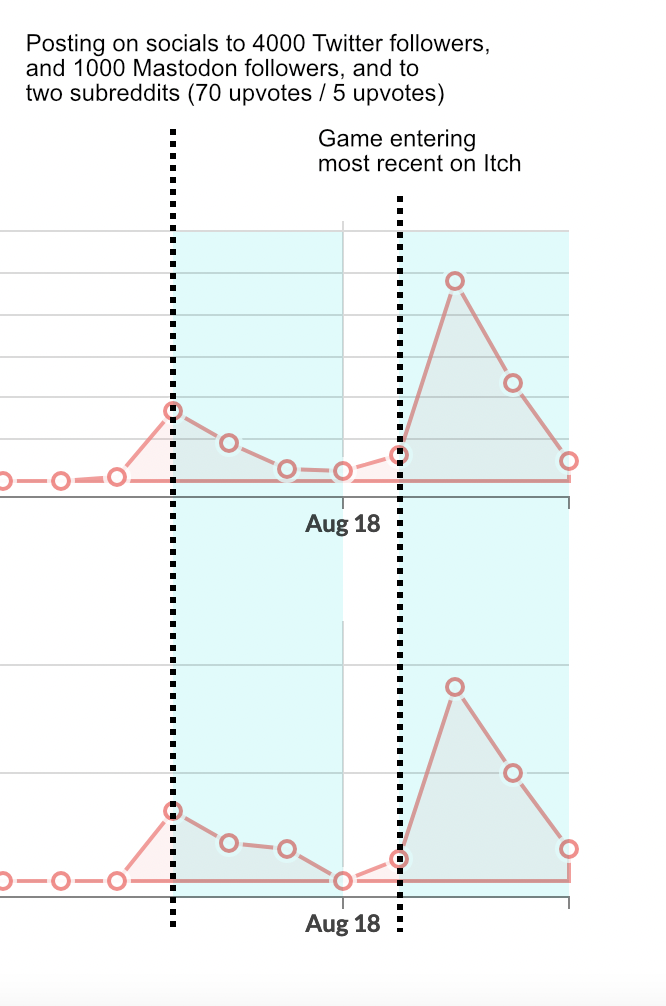Creating a major update devlog and publishing it can make your page eligible for a freshness bump that can place it on the top of the most recent page.
Right, I did that 3 days ago shortly after creating this thread, based on suggestions by others, but it had no effect. It's something worth trying I'm sure, but not something that necessarily works.
Just to make sure you’re getting some visibility I’ve given your page the bump since it looks like an interesting project.
Thanks a lot, I appreciate it.
Still, I'd hope the underlying issue would get fixed for everyone's sake instead of relying on unreliable measures like major release devlogs which may not work, or complaining on this forum to get attention.
The fact is, a game is by all intents and purposes only public (discoverable) once it's indexed. Prior to that it's not searchable and not in the various "Recent" lists. It stands to reason that those lists should use the time of indexing for sorting, rather than the time of page creation. Or to put it in terms of existing functionality, the moment a page is indexed it should get a recency "bump" fully automatic, so that once it gets on the "Most Recent" list for the first time, it should start at the top of that list, rather than way down the page (if the game's page was published long ago, but the game was not indexed back then).
Do you not see the logic in this? That the criteria for inclusion on the Most Recent page and the criteria for sorting on the Most Recent page should match up rather than the sorting being based on a date (page creation) that could be months prior to the game entering the Most Recent page at all (due to being indexed)?
If you believe the current logic makes more sense, I'd really love to see an argument for why that is. It's completely contrary to how most "most recent" lists work, and does not match common sense at all. Plus, most importantly, it lets devs shoot themselves in the foot completely unnecessarily just because they publish a game page before the game is actually available. This is standard practice outside of Itch (generally recommended promotion tactic, and required on Steam). But on Itch doing this same thing will mean your game will not ever be at the top of the Most Recent lists, except if you're lucky that publishing a major update actually works (and know about that trick in the first place).


